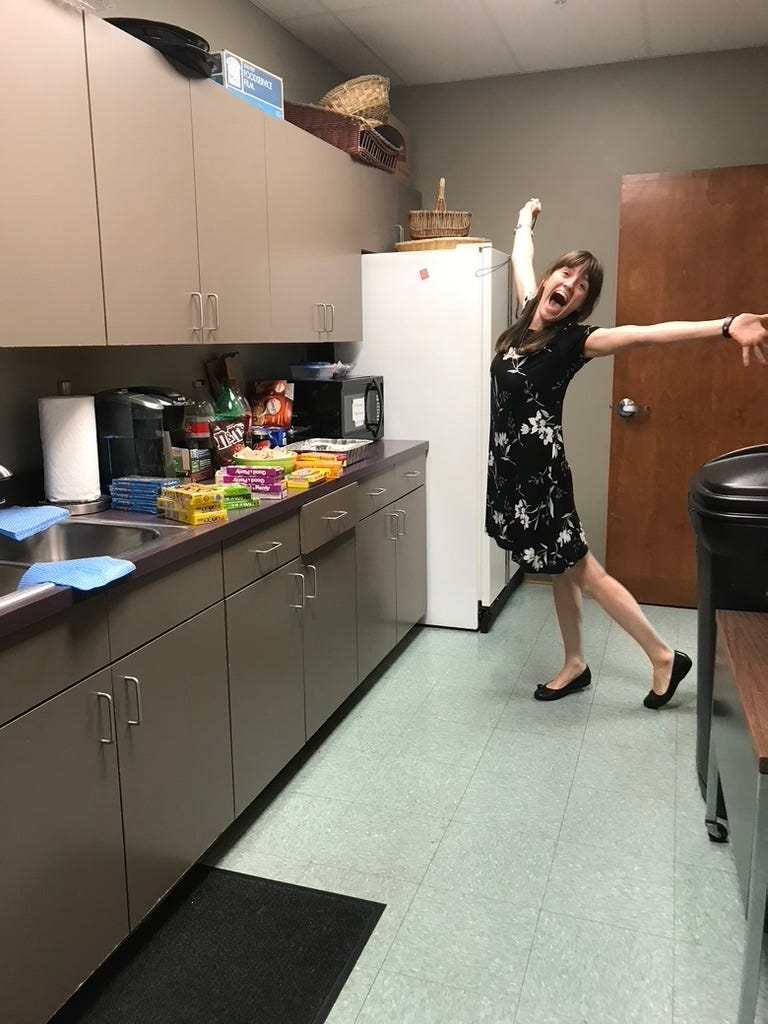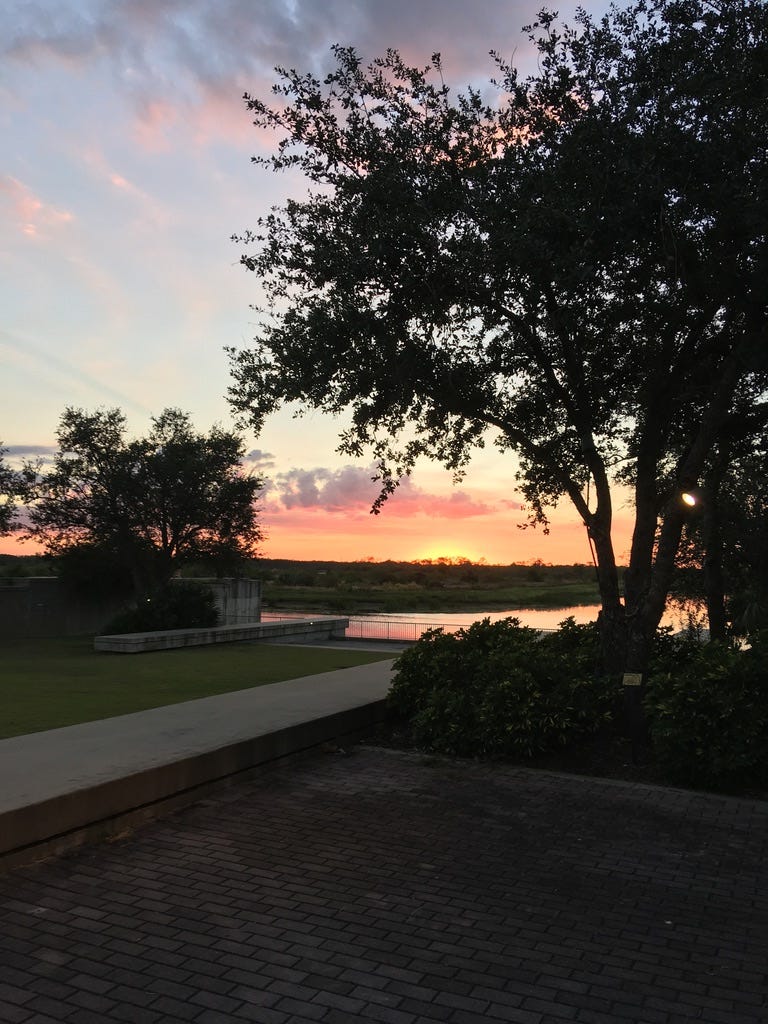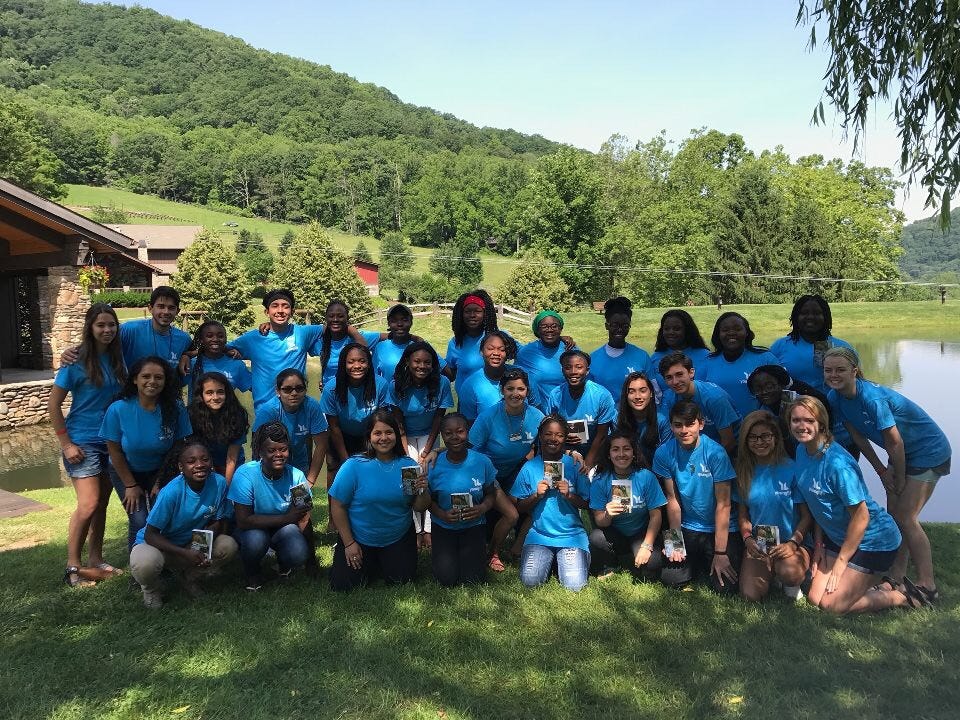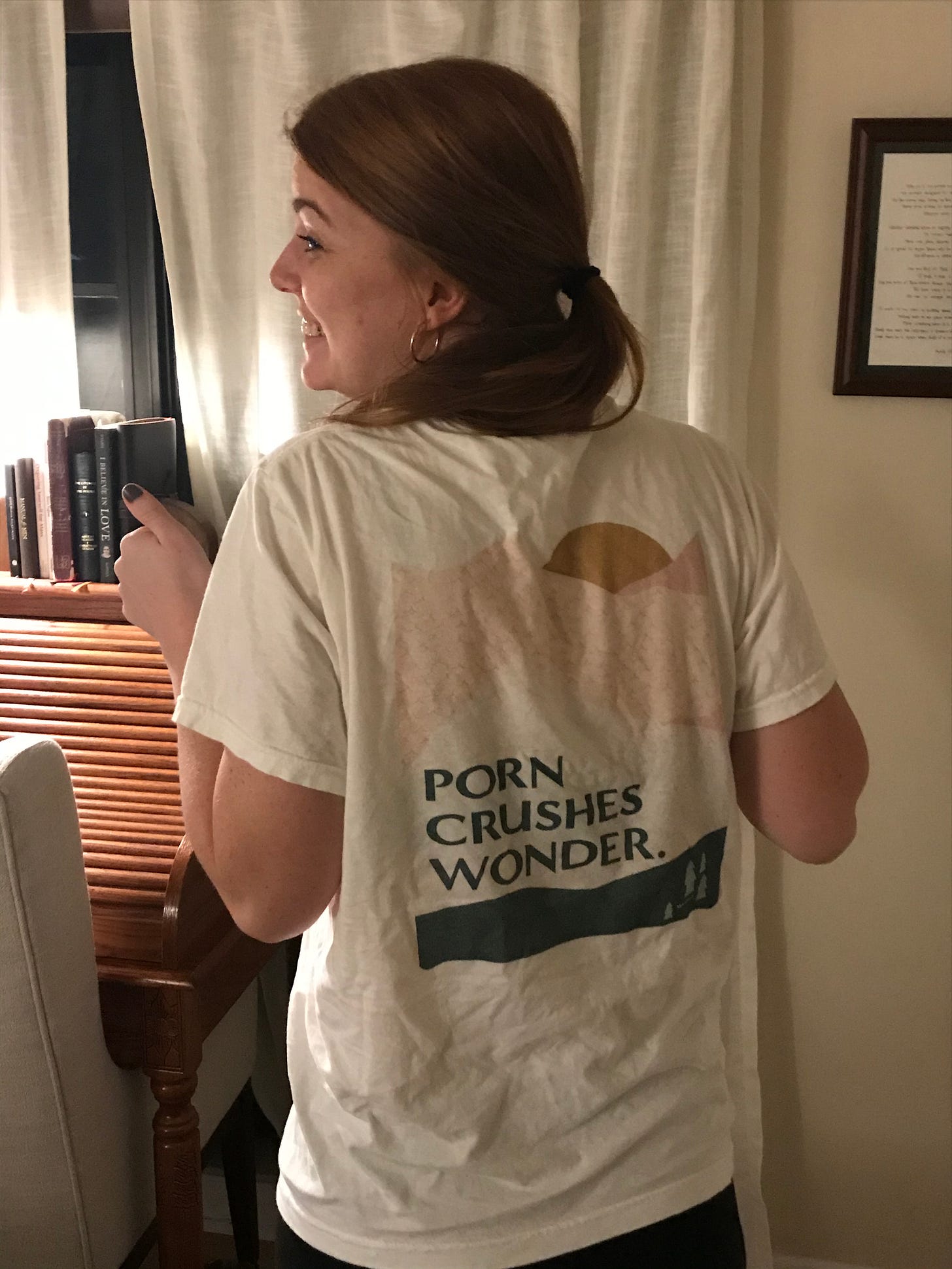After my most recent post, I got a bit angsty about Substack. I’ve noticed over the past 3 years that this tends to happen every 3-4 months, particularly when I find myself entrenched in a comments-section spat. You’d think I’d have learned by now?
I highly value being understood, whether it’s interpersonally or professionally. That makes platforms like this a bit difficult, and having any public dimension to my work difficult, too. But, that being said, in order to help people understand, I might need to give them a bit more context (and after
did something similar, I felt confirmed that this is a good idea). I hopped on Substack on a bit of a whim almost 3 years ago, on my editor’s advice after publishing a book to create a habit of continually writing. I haven’t driven much for following, and my subscriber count is actually turned off on my profile because I want to minimize mimetic following as much as possible. If I’m your speed, great. If I’m not, great.But, subscriber count has tripled in the past year, so there’s more people here who are deciding whether or not I’m their speed.
So…here’s me, I guess.
First and foremost, I am a follower of Jesus and a devout Roman Catholic. I have always been Catholic, though my journey with the faith has had some bumps, especially in the past 5 years—mostly as a result of working for the Church and in ministry spaces, which I will write about more one day. I am the third of six children, and have some (not all) of the middle-child stereotypes. We were raised by converts to the faith, mostly in Colorado, a place I love deeply and treasure in my heart.
If you’re into personality tests, I have tested both as an ENTP and INTP (a true ambivert?), and I’m a choleric-melancholic. I tend to lean more on temperaments than personality tests because I find them more dynamic and a bit more spiritual, and have been more helpful to me in coming to understand myself. To summarize my temperament, my husband likes to quote Fulton Sheen’s words about the Irish: “You fight because you love.” I hope it’s true.
I had an amazing moral theology teacher in high school who redirected my study aspirations from theatre/acting (where the theatre kids at) to theology. I went to Ave Maria University in Florida, where I got both my bachelor’s and master’s degrees.
My time at Ave was rich, and I made lifelong friends there. I loved my studies but was known for being late to just about everything, including class. My favorite class that I still think about and reference to this day was an entire class on C.S. Lewis, taught by my favorite professor who has become a mentor and friend, and a board member of my organization. My time in college was also deeply influenced by being a YoungLife leader for the first year and a half I was there, which set a new template for how I approached evangelization and ministry—something I also plan to write about in the future.
My later years at Ave also became the birthplace of what constitutes my full-time work now: serving women seeking healing from sexual brokenness. I began sharing my personal story of recovery from pornography use at women’s events at Ave, and started a support group there for fellow students. I passed it on after my senior year, not necessarily thinking much would come of it after college. I was, obviously, wrong.
The summer after I graduated from college, I was going through a phase of deep personal healing. After a season of coldness, dryness, and uncertainty about the direction of my life, I had committed to grad school and begun to do some digging into the state of my soul and some old wounds that had been festering. In the midst of this, through some last-minute circumstances, I ended up crashing a wedding with my older brother and his then girlfriend, now wife. It was for my brother’s best friend from high school, and I was there to keep my sister in law company. I was also there, in God’s providence, to meet my husband, apparently.
Tommy was also a groomsman—turns out, my brother’s high school best friend was my husband’s best friend in college. Tommy and I danced and laughed a lot that night, and I knew something might have staying power when I started spouting about George MacDonald and he quoted Aquinas back to me.
We dated long distance while I finished school in Florida, and he was serving in an apostolate in Nashville, TN called Love Good. That year was a bit crazy—he was working two jobs, I was overloading to finish my degree, and then…COVID hit. But, the rollercoaster that was dating was a discernment tool that continues to ring true: we could handle chaos together, or at least learn how. I am profoundly grateful for a companion who is committed to growth, honesty, and faith with me, no matter our circumstances.
In my master’s studies, I focused heavily on St. Augustine and memory, merging his work with C.S. Lewis’ on sehnsucht, or spiritual longing. Hard to summarize 75 pages of work, but essentially, I saw a connection between the Neo-Platonists treatment of anamnesis, Augustine’s memoria, and Lewis’ sehnsucht or nostalgia in the human experience of encountering God.
Ave, like many Catholic schools, is small, and so my worldview emerging from it was also a bit more narrow than it is now. I don’t think this is abnormal or even bad, but I’ve been grateful for the expansion that life has brought, particularly to how I approach my faith, both living it and sharing it. After leaving grad school, I moved to Nashville to continue discerning with Tommy and we got engaged a few months later. I also got hired by the Diocese of Nashville as the assistant director of catechesis, overseeing religious education for K-8 and OCIA. The woman who hired me,
, definitely took a chance—I was 22, fresh out of grad school, and definitely not experienced enough for the job. But, what I lacked in experience I tried to make up for in zeal, and I am forever grateful to have gotten the chance to work with Joan—whom I now call friend. If you’re looking for an example of how to exercise both strength and grace in ministry leadership, particularly spaces that aren’t as female-friendly, look no further than Joan. It was an incredible grace, as a young woman starting my full-time work in the Church, to have such an example in front of me, and her choice to hire me solidified a calling.
While working my diocesan job and preparing for marriage, I had the chance to share my story of healing and recovery again to the participants of the small group I had started at Ave. I hadn’t shared in a while, and I found that the fire for the topic hadn’t died in the few years of lying dormant. Out of a desire to see if there were any apostolates focused on women’s recovery from sexual addiction I could get involved in, I connected with
, who instead encouraged and supported me in beginning one myself—which led to the founding of Magdala.We began as a small volunteer effort, but now, in our fifth year, we have a full-time staff of 3, over a hundred volunteers, and serve hundreds of women globally every year. This work has changed my life, and I never could have imagined doing it, even five years ago—just before its beginning. Our organization serves as both a safe place for women to seek support in healing from sexual addiction, but also as an expression of advocacy for women in recovery in the Church in general. As you can read elsewhere on this Substack, women have not received the pastoral care they need in the realm of sexuality—Magdala seeks to step into some of that gap.
I got married three months after founding Magdala, and made it my full-time focus not long after that. More importantly, over a year after we got married, we welcomed our daughter. Becoming a mother was perhaps the hardest, most visceral, raw, and joyful experience of my life. I am still becoming one, and therefore still unpacking what it all means. We had recently moved to Florida just a couple months before her birth, so I was isolated and lonely a lot at the beginning. I worked on building a non-profit while my baby napped next to me (read also: on me), on a desk in the hallway of our apartment. But in that isolation and pouring out, I found a new fusion of parts of my heart that hadn’t yet found their place.
Mothering, more than anything or anyone else, changed the way I worked. My apostolate and career became another avenue to extend the maternal tenderness my daughter evoked from me, and in turn, I found the demand of my professional work and its sharpening of different skill sets refined those skills for my home, whether that was budgeting or communication or just plain multi-tasking. It took about a year for me to begin to feel this symbiotic relationship between motherhood and my professional life, but it’s a fusion I’ve only seen deepen since the birth of my son, almost two years to the day after my daughter.
Just this past week, we moved from Florida back to Tennessee, after never ceasing to call it home in our hearts. We are grateful to be back, and I felt myself breathe a sigh of relief as we crossed the state line last weekend. Maybe that’s why I’m writing this now: this summary of what I’m about. Because, more than anything, I’m about going Home.
I am about involving myself in the business of Heaven, despite my shortcomings and my inability to let that business work its transformation within me at times. I have a deep love for the truth and its role in reality and faith, and a particular eye for when “truth” is begin used as a trojan horse for something decidedly untrue. My husband and spiritual director both recently helped me clarify this: some people have a charism for evangelizing outside the Church, to people who have yet to hear the Gospel. My charism, perhaps, is looking from the outside in. The questions that plague me are not how to get people into the Church, but rather, what Church do they join when they do come? Is it the real, lasting, messy, one, holy, catholic, and apostolic Church? Or is it a caricature of the online world’s construction, riddled with false dogmas?
I encountered a quote when I was in my diocesan job that I later had printed, and it hangs in my office today (or it will, once we unpack). It was spoken to St. Catherine of Siena, my confirmation saint and dearest spiritual friend:
“I have set you as workers in your own and your neighbor’s souls, and in the mystic Body of holy Church. Take your tears and your sweat, drawn from the fountain of My Divine love, and with them wash the face of My spouse the Church. I promise you, that by this means, her beauty will be restored to her."
I can wrack my brain for a summary of what I’m about, but I think it’s this quote, if I can be so bold as to borrow it. I want to be unafraid to acknowledge the stains on the face of the Church, because they are there, and we deepen the problem when we pretend they are not. I want to toil for the people under her care that feel forgotten, because maybe they have been—but they don’t have to be. I want to transcend the politically-motivated shouting match we find ourselves in, and instead focus on how the Church can best go about her work of sharing and proclaiming the Gospel. I want to look from the outside in, to speak from the vantage point of how someone from outside the Church might see it, so as to ensure the Church leaves as few people as possible on the outside—without ever compromising who she really is. It will, and has, taken tears and sweat—but that’s the assignment, and I hope to spend my life in it.
How this looks right now is primarily working with women in recovery, who have felt forgotten in the Church’s pastoral care. It also looks like encountering people who have experienced deep trauma, receiving their stories, and allowing those stories to affect me. Working with women processing intense sexual trauma and compulsion over the past several years has influenced how I approach everything from feminism to LGBTQ issues to abortion. I remain committed to the Church’s teachings, but convicted that we must deliver those teachings in a manner that seeks to dignify and uplift the listener, never to belittle or demoralize them. If you comment with a tone that embodies the latter, I will block you, not because I’m petty, but because I’m not interested in being spoken to (or others being spoken about) in a way that I wouldn’t stand for if I was at social event. I’m on Substack and not on X for a reason—I want real, productive engagement with intellectual conversation that can better us, not keyboard wars.
The Contrarian was a name also picked on a whim, when I didn’t really know what this would look like or what exactly I would say. Maybe it’s aptly named, maybe it’s not—I’m trying not to take it too seriously. I never had much of a direction for this, except to do what I’ve described above: to try to write something true, to call out what is not, to correct myself when I misfire, and to dignify those who have not been dignified as they should be. That’s what I’m about—if you stick around or subscribe, I’ll assume you are too.
P.S.: Particularly to my paid subscribers, thank you. Having people who support my writing wasn’t something I anticipated at the beginning of this, but I am so grateful for your encouragement. I hope to continue to write true things for you!







This was great to read, Rachael! Loved hearing more about your background and what has made you into the woman you are today.💕
Thank you for sharing, Rachel. I'm on Substack primarily to share what I have written with my family and to explore different points of view. Your writings seem based on sound Catholic teachings and respectful of other's point of view irregardless of agreement or not. Keep on keeping on.